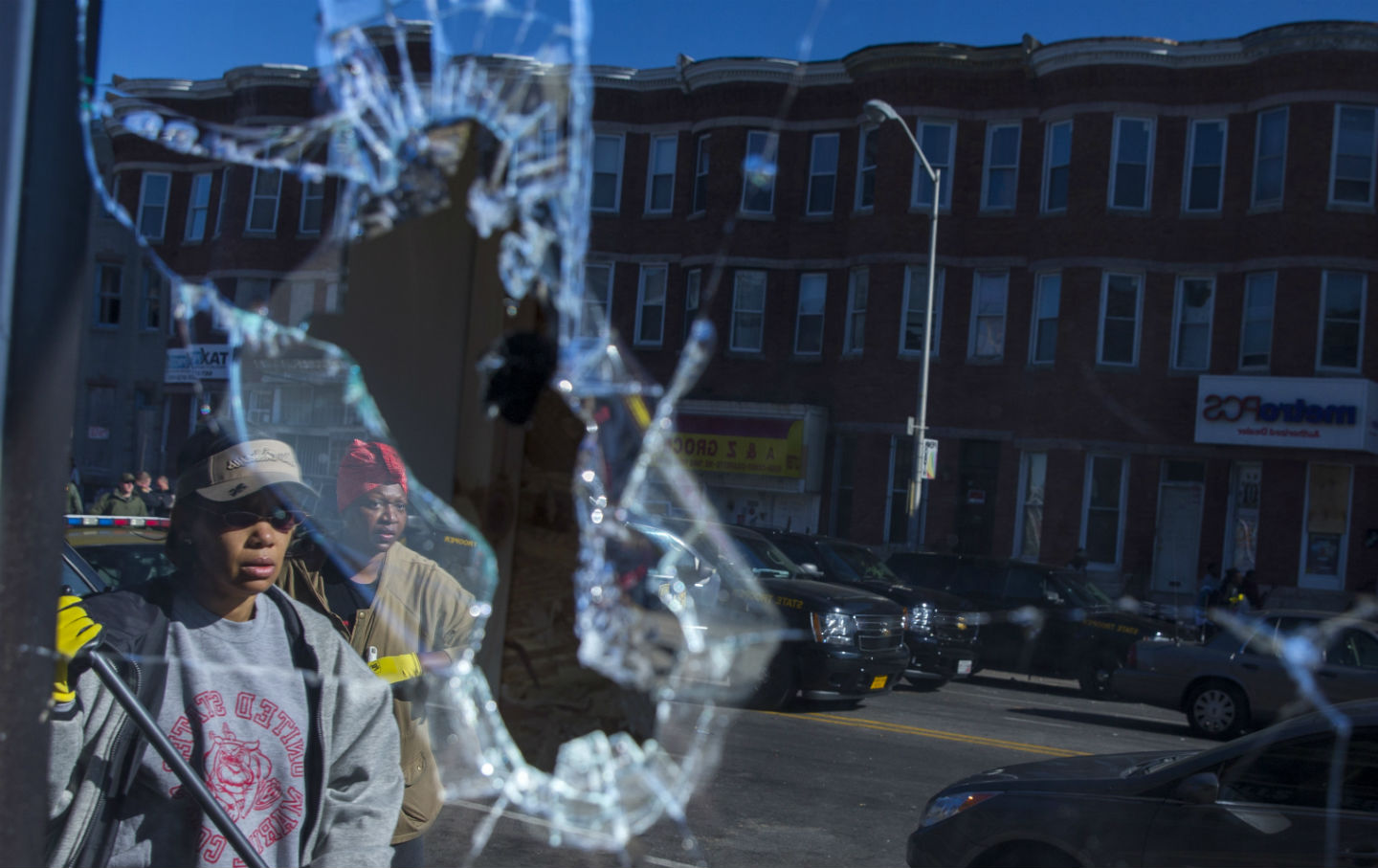What change will a “peaceful” protest spark if a “peaceful” protest is so easy to ignore?
Mychal Denzel Smith
Residents, reflected off broken glass, clean up after an evening of riots following the funeral of Freddie Gray in Baltimore. (AP Photo/Evan Vucci)
Whenever there is an uprising in an American city, as we’ve seen in Baltimore over the past few days in response to the police-involved death of 25-year-old Freddie Gray, there always emerges a chorus of elected officials, pundits, and other public figures that forcefully condemn “violent protests.” They offer their unconditional support for “legitimate” or “peaceful” protests, but describe those who break windows and set fires as thugs, criminals, or animals. And eventually someone invokes the legacy of Martin Luther King Jr. and the civil-rights movement, reminding us that nonviolence brought down Jim Crow segregation and won voting rights.
There’s something that needs to be cleared up: the civil-rights movement was not successful because the quiet dignity of nonviolent protests appealed to the morality of the white public. Nonviolent direct action, a staple employed by many organizations during the civil-rights movement, was and is a much more sophisticated tactic. Organizers found success when nonviolent protests were able to provoke white violence, either by ordinary citizens or police, and images of that brutality were transmitted across the country and the rest of the world. The pictures of bloodied bodies standing in nonviolent defiance of the law horrified people at home and proved embarrassing for the country in a global context.
So anyone who calls for protestors to remain “peaceful,” like the civil-rights activists of old, must answer this question: What actions should be taken when America refuses to be ashamed? Images of black death are proliferating beyond our capacity to tell each story, yet there remains no tipping point in sight—no moment when white people in America will say, “Enough.” And no amount of international outrage diminishes the US’s reputation to the point of challenging its status as a hegemonic superpower.
What change will a “peaceful” protest spark if a “peaceful” protest is so easy to ignore?
It’s not only ahistorical to suggest that “riots” have never been useful in the quest for social justice, it is impractical to believe that the exact same tactics of movements past can be applied today. The politics of our time are different, so must be our social justice movements.
Does that mean “riots” are the answer? No one knows. If the anger of a people denied humanity and democracy is continually dismissed as lawlessness, perhaps these uprisings will prove only destructive. But if the people with the ability to change the system that produced this anger will only listen to the sound of shattering glass, then maybe this is the solution.
Either way, condemnation without understanding will only feed the current rage. If the elected officials, pundits, and other public figures are actually concerned about torn up buildings and burned out cars, they’d do better to pay less attention to King’s tactic of nonviolence and more to his message of justice.
Mychal Denzel SmithTwitterMychal Denzel Smith is the New York Times-bestselling author of Invisible Man, Got the Whole World Watching and a 2017 NAACP Image Award nominee.